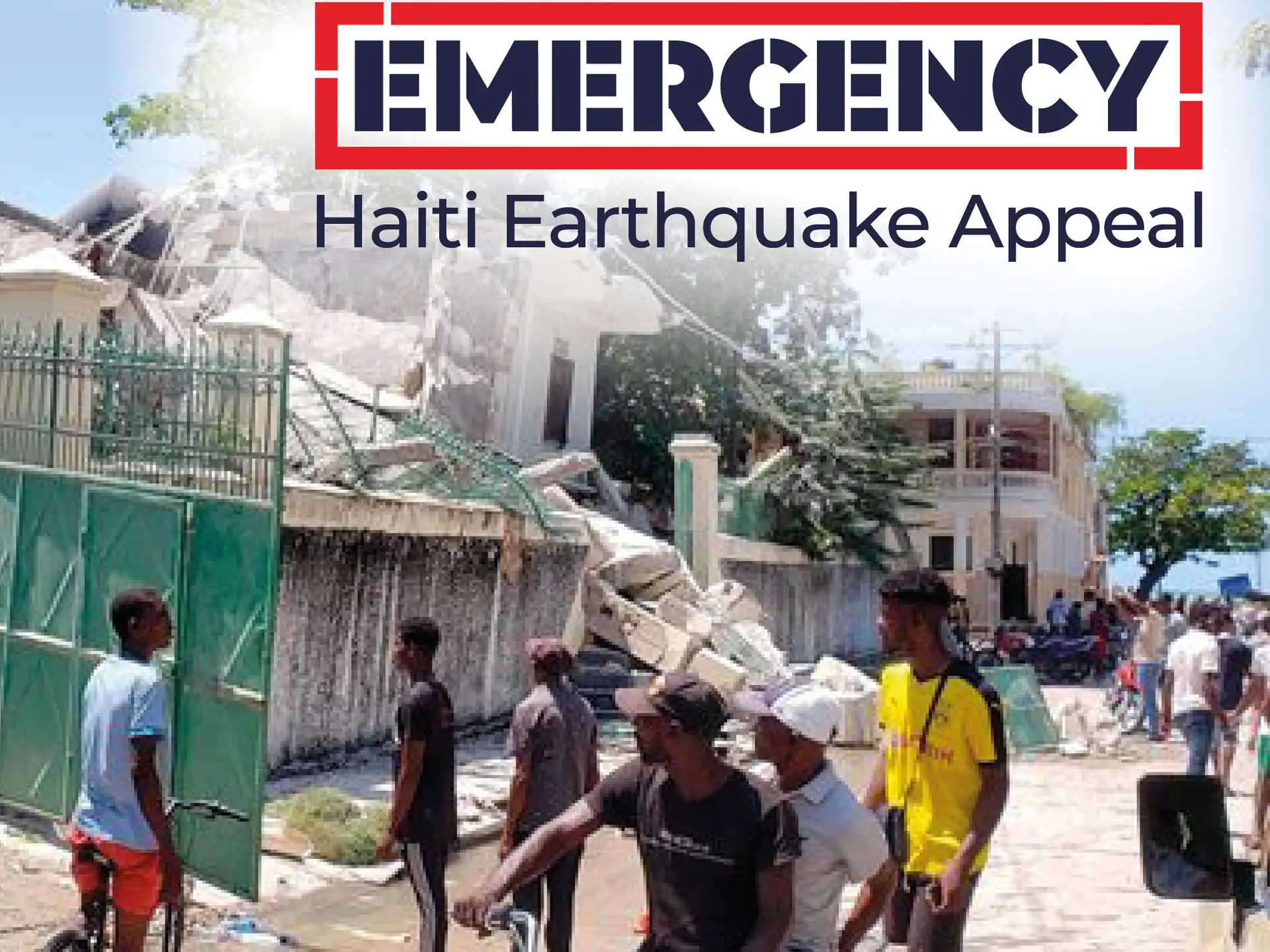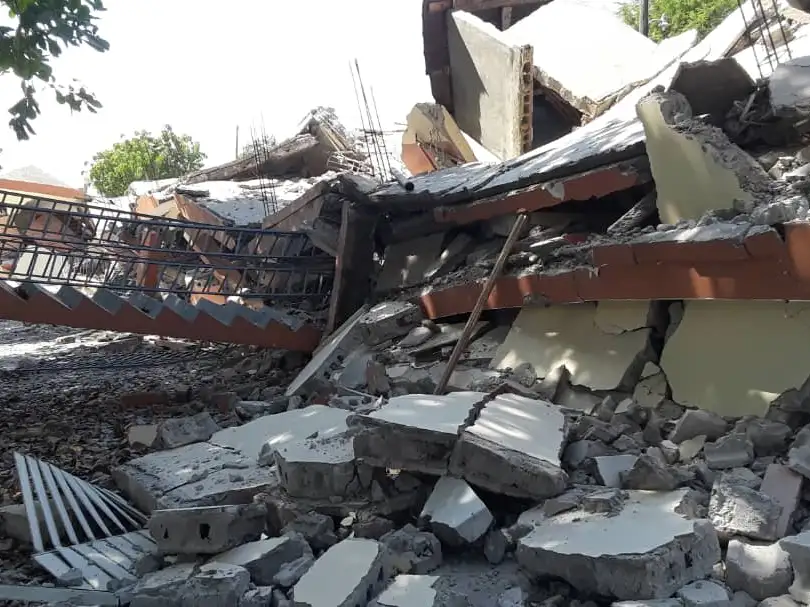

Your donations helped local experts provide emergency food, water and shelter to those most affected.
A devastating 7.2 magnitude earthquake struck Haiti on Saturday 14 August at around 8.30am local time. More than 2,000 people were killed and thousands were injured.
Buildings collapsed including around 10,000 homes, churches, schools and hospitals. Just days later, Tropical Storm Grace hampered efforts to help those affected by bringing strong winds and heavy rains.
Many churches were damaged by the earthquake. In Les Cayes, the residence of Cardinal Chibly Langlois, bishop of the diocese and president of the Haitian Bishops' Conference, was damaged, and the Cardinal was injured. A priest staying in the bishop’s residence was killed.
The earthquake was stronger than the 7.0 magnitude earthquake in 2010, that killed more than 200,000 people.
What happened following the earthquake in Haiti?
The Haitian government declared a state of emergency for one month. The earthquake could not have come at a worst time for Haiti, which is still recovering from hurricane Matthew after it struck the country in 2016.
Colliding with this dire humanitarian situation is political instability after the assassination of President Jovenel Moise on 7 July and the coronavirus pandemic, which is greatly worsening the already fragile humanitarian situation. More than 4.4 million people were in need of basic aid – food, water, shelter.
After the earthquake, local aid workers carried out rapid assessments on the scale of the damage and the immediate needs of people.
The generosity of CAFOD supporters allowed us to immediately pledge £50,000 to local Church partners on the frontline of the humanitarian response. Your further support has allowed them to scale up their response and reach even more people with urgently needed food, clean water, tents, tarpaulins, blankets and hygiene kits. It has also provided opportunities to earn money through 'cash for work' schemes.
The needs of the population are immense. There is an absolute demand for food, water, tents, hygiene kits and first aid.
How did CAFOD and local experts respond to the earthquake?
We have been working with local Church organisations, Caritas, the Jesuit Migrants and Refugees Service, the religious congregations and sister agency CRS to provide urgent humanitarian aid for families.
In the months since the earthquake, your donations have helped our local Church organisations distribute the following:
Clean drinking water.
Tarpaulins for temporary shelter.
Food kits - containing items like rice, pasta, maize, beans, fish and cooking oil.
Hygiene kits - containing items like toilet paper, toothpaste, toothbrushes, hairbrushes, soap and washing powder.
‘Cash for work’ schemes where people are given cash in exchange for their help repairing roads or homes.
Director of Caritas Haiti, Father Jean-Herve Francois, told CAFOD after the earthquake that:
“The entire Caritas Haiti network, especially the emergency team, is participating in coordination and aid operations in three affected departments. They have already reached there. The needs of the population are immense. There is an absolute demand for food, water, tents, hygiene kits and first aid."


Buildings collapsed including an estimated 10,000 homes, churches, schools and hospitals.
What areas of Haiti have been affected?
According to the United States Geological Survey, the earthquake struck the southern peninsula of the country – two cities, Les Cayes and Jeremie. The earthquake hit five miles from the town of Petit Trou de Nippes, and about 80 miles west of the capital, Port-au-Prince. These areas are some of the most remote on the island, with poor infrastructure.
What has the Catholic Church in the region said?
In a letter of solidarity, the Catholic Church of Latin America and the Caribbean (CELAM) and the wider church wrote:
“As the Church in Latin America and the Caribbean, we want to express our closeness and solidarity with our Haitian sisters and brothers and with the Church on pilgrimage in Haiti, in view of the possible human losses and material damage caused by the tragedy.
"We express in particular our affection and communion with the People of God through our brother bishops, sisters and religious men and women, priests, lay men and women, who, as a Samaritan Church and in missionary outreach, are witnesses of God's mercy, especially among the most needy and vulnerable."
At the end of the Angelus, Pope Francis called for prayers for Haiti, and for global solidarity. He offered his encouragement to the survivors and hopes that the help of the international community might reach them: "May the solidarity of all alleviate the consequences of the tragedy!"

